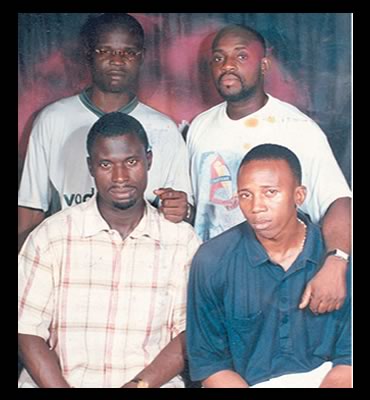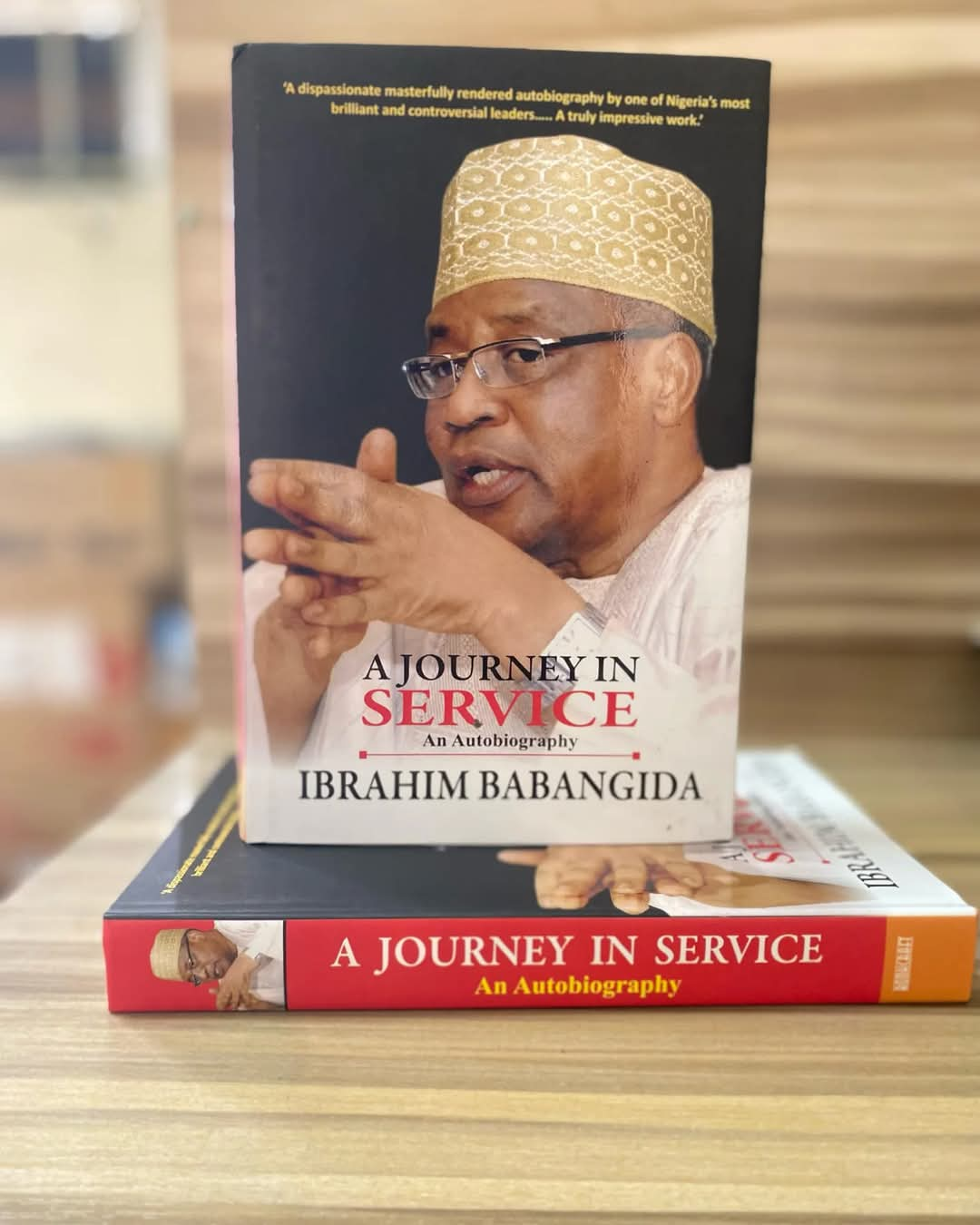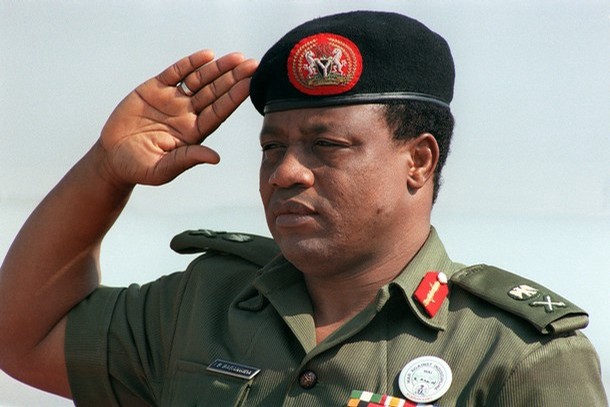Richard Ajibola Ogunderu, now a full blown adult and one of the four Nigerian teenagers that hijacked a Nigeria Airways airbus in protest of the annul
Richard Ajibola Ogunderu, now a full blown adult and one of the four Nigerian teenagers that hijacked a Nigeria Airways airbus in protest of the annulment of June 12 1993 general elections and diverted it to the Republic of Niger, is opening up on that daring move and the pains from the nine harrowing years they spent in the arid prison of Niamey.
The plane hijack was the first of its kind in Nigerian history as Richard Ogunderu was certainly younger in 1993 when he led a group of co-teens to hijack a Nigeria airways bus A310 scheduled to fly from Lagos to Abuja. Ogunderu, and his co-plotters, Kabir Adenuga, Benneth Oluwadaisi and Kenny Rasaq-Lawal took the daring action on that afternoon when Chief Ernest Shonekan and his interim government was battling almost fruitlessly, to salvage the floundering image of a nation then in turmoil. The group joined the passengers in Lagos, their pony bags hung on their shoulders as they filed through the queue to board the Nigeria Airways plane from the local airport in Lagos.
As the plane settled to cruise at about 30,000 feet above sea level and the pilot announced that passengers could loosen their belts, the boys blinked to each other on their seats, beckoning on the ringleader to strike. He did and the other hijackers, all in their teens, followed. They did not only seize the plane, they also held in awe all the bewildered passengers, some of who were business people or top government officials flying to Abuja, the seat of power.
The boys cited the need to enthrone democracy and actualize the annulled June 12 election as the reason for what appeared a desperate action, quite strange to their social milieu. ‘Ladies and gentlemen, this plane has been taken over by the Movement for the Advancement of Democracy, remain calm, we will not harm you. You will be told where the plane will land you’ a gritty voice, not as sonorous as that of a pilot, echoed through the small speakers.
Panic. Fear. Uncertainties. The air hostesses, Ogunderu recalled, were almost stone dead, having been gripped by fear. They must not move else they would ‘be dead.’ A passenger who was in the toilet was said to have remained indoor until one of the hijackers came to pull him out. Ogunderu said the action of the four boys, now men, was ‘meaningfully desperate.’ He said he and his peers were frustrated by the annulment of the election and the fact that the country appeared almost heading for a civil war and that his group had to take the action to send jitters down the spine of those in power and to make people realize that Nigerians were not everlasting dummies.
The group’s action was under the aegis of Movement for Democracy in Nigeria, MAD. The group claimed June 12 motivated them. But there are cobwebs of puzzles: who sponsored the action and how was the operation carried out? How were the boys recruited?
Before the action, MAD’s leader, Mallam Jerry Yusuff said to be an indigene of Kwara state, had been in the forefront of the campaign against military rule. In the hey days of General Ibrahim Babangida’s rule in 1992, MAD made some appearances at the National Theater, through seminars, in the campaign against military reign, but the group did not carry out the hijack until the interim government of Chief Ernest Shonekan had been installed late in 1993.
Yusuff is a product of universities that focus on hard-line Islamic studies. He was born in Ofa, Kwara state in 1952. He lived in Germany between 1973 and 1977 and was thought to have learnt German. He was a businessman who specialized in selling cocoa. When his boys seized the Nigeria Airways plane, they gave 72 hours to the government to meet their demands or else they would set the plane on fire. They however allowed 34 passengers to go, leaving the remaining 159 among whom were top Nigerian government officials. The Niger Interior ministry listed a Chinese, Rong Viren as one of those released. Niger also said the plane had wanted to refuel in Chad but was refused landing.
Ogunderu who led the assault recalled: “I walked into the cockpit and seized the process, and then the others followed me. Two of us stood in the plane to intimidate the passengers. We took over the plane and asked the pilot to head for another country.”
Though Ogunderu did not say it, but an independent source hinted that originally the plane was to be diverted to Germany but that Niamey became a choice when it became obvious that the aviation fuel would not sustain the plane for any longer distance. Ogunderu said the plane landed in Niamey in less than two hours and that as it grounded to a halt, he could see, from the louvers hundreds of armed gendarmes waiting at the airport.
The hijackers had issued prepared statements, which they distributed in the plane calling on the Nigerian government to actualize the June 12 election and swear-in, the winner, Chief M.K.O Abiola. Negotiations began with the hijackers after a few days of lull and indecision by the local authority, who were unaware of the hijackers’ military capacity, or whether they had explosives that could blow up the plane. The Nigerien authorities offered to release the hijackers provided that they would not harm the passengers, but while that was on going, Richard revealed, high level security meetings were in top gear with the chief aim of storming the plane and freeing the passengers, and if possible, kill the hijackers.
Asked if he was afraid when the gendarmes stormed the plane, Ogunderu said “We were on a mission. We wanted to show the evil regime that young people were prepared to go the extra length to free Nigerians from the yoke of military dictatorship. We were not afraid, at that moment. Death meant nothing to us. They stormed the place and we were alarmed, we didn’t shoot, we tried to perfect our safety and the safety of the passengers,” he said.
Apparently, the negotiation the Nigerien government was having with them was bait, aimed at buying time and psyching up the level of sophistication of the four teenagers that apparently had no experience in hijack and some of who had not even seen a plane until they took that action. Richard admitted that he was the one who briefed the boys of what each was to do and what role was to be carried out by each.
In Niger, Ogunderu and his boys asked for more fuel to enable the plane fly to Frankfurt, but the Nigerien authority declined the request. The four, on landing in Niamey, held on to the plane for some days, trailed by bait negotiations until the gendarmes stormed the plane to rescue the passengers. ‘We were shot at. Some people died’, he recalled.
However, a few days later, hundreds of armed gendarmes stormed the plane in the night, when the hijackers were thought to be asleep.
“They thought we were asleep, so they came under the cover of the night and fired several shots. They bombarded the plane. I think one person died,” Ogunderu recalled.
The four were handcuffed and taken to a prison in a community with day temperature in the range of 55 degree centigrade.
“We were poorly fed. We could neither speak Hausa nor French and nobody spoke English to us,” Lawal said.
With the arrival of the hijackers in a tiny country of lowly political tempo, a worried President of Niger, Mohamane Ousmane made a broadcast assuring his countrymen that he was on top of the situation. Soon, undercover security operatives began move to track down the brain box of the hijack. This led to the November 14 1993 abduction of the MAD leader, Mallam Jerry Yusuff. The adduction took place three days after the late dictator; General Sanni Abacha took over power.
Yusuff was kidnapped from the street of Ilorin and taken to Niger, but the episode was kept under wraps by the governments of Niger and Nigeria. Yusuff said security operatives told him that he was being taking to Abuja but never knew until the plane landed in Niamey. On his secret abduction, the cat was let out of the bag only when officials of the local human rights group, Association Nigerienne Por La Defense Des Droits Dehomme, visited President Ousmane on behalf of the hijackers.
In the discussion the President had with them, he unconsciously revealed what was hitherto a state secret when the rights group asked him about the fate of the four hijackers. The President asked them which of the hijackers they were pressing to be released. The then President then mentioned that Yusuff had been brought into the country, which gave the human rights body the advantage to publicize the abduction of the MAD leader. However, the trial judge who presided over the case of Yusuff, Justice Abdourahmane Gayakoye held that Yusuff should be discharged since he did not commit the offence in Niger Republic; however the then public prosecutor, Mr. Matty El Hadj Moussa appealed the matter. The legal fray did not lead to the release of Yusuff until several years later.
Richard said when he carried out the action, he had only then left his secondary school in Ondo State. He was the one that led the cell within the MAD, which felt the ‘best’ way was to turn the table against military rule and the surrogate government of Shonekan, even if it entailed using anarchical methods.
“We were fired by the need to actualize June 12 through any means possible. We wanted to demonstrate rare courage that we could save Nigeria from the shackles of repression by giving a sense of courage to Nigerians.”
The hijack also revealed the inadequacies of Nigerian airport security. The security officials had no prior knowledge of the action. There was no tip off. The pilot himself was probably not trained enough to realize his abductors were holding a toy gun. For instance, in Lagos where the plane took off, Richard and the three others were part of the ‘innocent passengers’ that boarded the plane from Lagos to Abuja. Mid-sky, Richard said he was the one that stood up from his fastened belt and headed for the cockpit where the pilot and the co-pilot were holed up.
Richard recalled the pains, hunger, deprivation, penury, and threats of death, loneliness and the excruciating heat during the nine harrowing years in Niamey. There was no connection with their relations, no contact with loved ones, from morning till night, for nine years and four months, they had to endure relating with hostile and strange people whose culture were totally different from theirs. On many occasions, death starred at them and the future was almost at an infinite peril after several legal fireworks to seek their freedom had failed.
If there is anything the group of four gained, it was probably the ability to speak French, fluently. Richard, who on returning to Nigeria has been trying to enter the University without success, said he remains a graduate having spent nine years and four months learning how to speak French. He however said he is still frustrated by the lack of job and the inability of the Nigerian government to provide the essentials of life for her citizens.
On their return to Nigeria after spending nine and a half years behind bars, no one or group gave them succor, except their relations, they were left to fend for their future, the prime of which was almost wasted. While in Ndjamena prison, Kabir had improved his skill for drawing on canvass, sketching personalities and painting. Kenny kept his fashion design prowess alive throughout the gruesome nine years. Kabir and Kenny have now returned to Niger Republic where their knowledge of French and their profession earns them a fair living.
Richard on return to Nigeria, attended the Alliance Francaise where he brushed up his French language course with a diploma degree. But he still needs a salary-earning job. Richard’s father, Yemi said there were lessons to be learnt from the action of the four boys. First, he said that with the growing wave of kidnappings across the country, it shows that ‘Nigeria is not working and our children, out of desperation are taking desperate actions, sometimes deadly, to survive what he described as a ‘stifling socio-political situation.’ He said the current leadership in Nigeria needs to respond to the fundamentals that make young people to want to risk death in the quest for survival saying that the action of the plane hijackers was a ‘desperate action in response to desperate oppressors in the country.’
However, there are suspicions as to the motif of the kidnap and the covert intrigues behind the action. Was it carried out with the prompting of the Nigerian security operatives under the direct supervision of General Sanni Abacha who was then the Minister of Defense under Shonekan? Was it a plot to create an illusion of insecurity so as to justify the taking over of Shonekan’s government, using the innocent teens as unconscious cannon folders and puns in the wicked machination within the intra political struggle among the ruling elite?
- One information at least leaked to the Nigerien media that on the day of the kidnap, another Nigerian plane was earlier, abruptly brought by the Nigerian government to Niamey Airport.
- A source said the hijackers’ manifesto read that Abacha should take over from Shonekan. This last point on the hijackers manifesto was said to have been stripped with ink when the original list of demands was printed out for the public.
‘In security parlance, if Abacha used them, there was no way the boys would know, they might have acted with the belief that they were activists defending democratic principles, without understanding the complex power game that underlined their actions,’ one security operative who sought anonymity said.
But Richard’s father, who was equally arrested and detained by the then military government of Abacha said the boys’ actions were voluntary and that they could not have been sponsored by the military so as to aid Abacha’s emergence. He believes their action was born out of frustration against the military government and the growing resentment against the annulment of June 12 election.’ He said though the involvement of his son in the hijack caught him unawares, but that his son had always been known to ‘defend and promote basic human rights and the freedom of mankind’ right from his youth.
He said no military regime could use his son for parochial interests. He said his son’s glowing records as a young boy ‘who cherishes die-hard rebellion against military rule”, would not at the same time be a pun in the intricate politics of power. Richard said he was partly motivated by Abiola’s reputation as a generous person, saying that he was ‘proud to have risked his life to see freedom and democracy installed in Nigeria.’
He said “When I was growing up, I see the looting of public treasury, the wickedness of leaders, the I-don’t-care attitude and the rigging of popular elections across the country even today. I knew in my mind that this would lead to chaos and breakdown of law and order as we see today’ saying that economic and political frustrations tempts the revolutionary flavor in all of us. Their only regrets, according to one of them is that the “evil that Nigerians fought against several years back continues to luck around the country’s image.”
He said ‘it’s unfortunate that our leaders continue to oppress us, the worst being that we cannot even chose our representatives in the face of fraudulent elections and the daring posture of the perpetrators of crime.’”
All of them however, now believe that hijacking of a plane cn no longer be a solution. They in fact campaign against such or related action. Richard himself said one good thing about the current socio-political milieu is that “Democracy has brought hope; it has given us an opportunity to reshape our destiny, though we are yet to practice according to the rule.”
Today, Richard Ogunderu who had thought that he would become a pilot and fly some of the best planes in the world is currently bedridden. He once made attempts to be a pilot, after his release from nine and half years of incarceration, but his requests were not granted by a German aviation school in Frankfurt. Ogunderu’s father, Yemi Ogunderu, confirmed the state of the son, saying Richard needed help.
“He needs the assistance of whoever can help to get better treatment. His knee-cap was broken by the attackers. We have exhausted all we have, but his condition is still bad.”
Old Ogunderu further noted that Nigerian political leaders and activists abandoned the boys who, though took exuberant steps during the struggle, made a major sacrifice for democracy.
Excerpts from TheNation, SaharaReporters


